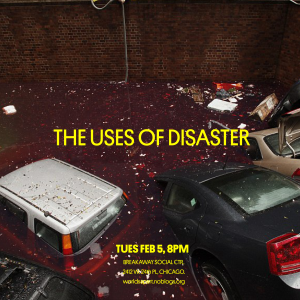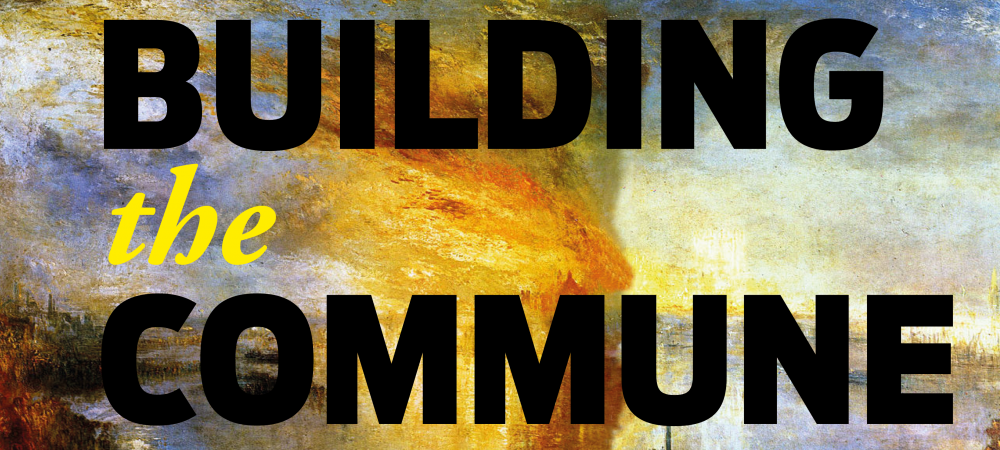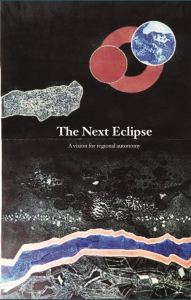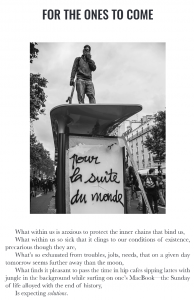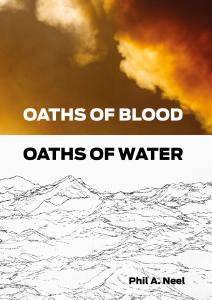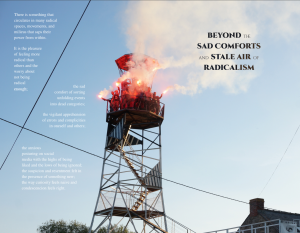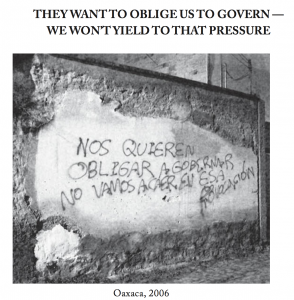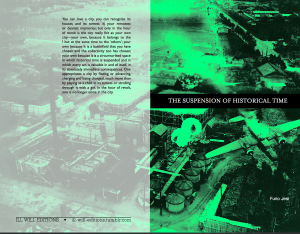
After a short hiatus, the Worlds Apart reading group is back. On Thurs Aug 10, we will be reading “The Suspension of Historical Time”, the second chapter from Furio Jesi’s 1969 book, Spartakus: The Symbology of Revolt. This time, we ask that you come to the meeting having already read the text, as we won’t be reading aloud. A color zine version of our selection is here: [READ / PRINT]. A simple, low-ink black and white PRINT version is here. A pdf of the full book is here. Some questions to think about:
How does insurrection reorganize our experience of time, choice, personal and collective symbols, and linguistic expression? What relation to truth, to oneself, the world and others, does it bring forth? Can insurrection form a part of a longer term strategy, or is there something that is fundamentally incalculable about it as an event? If so, what are its internal dangers and risks, and how can we enter moments of insurgent revolt with an eye to overcoming them?
If you are enticed by the selected reading, we recommend the third chapter, “The Symbols of Power” as supplementary reading.
